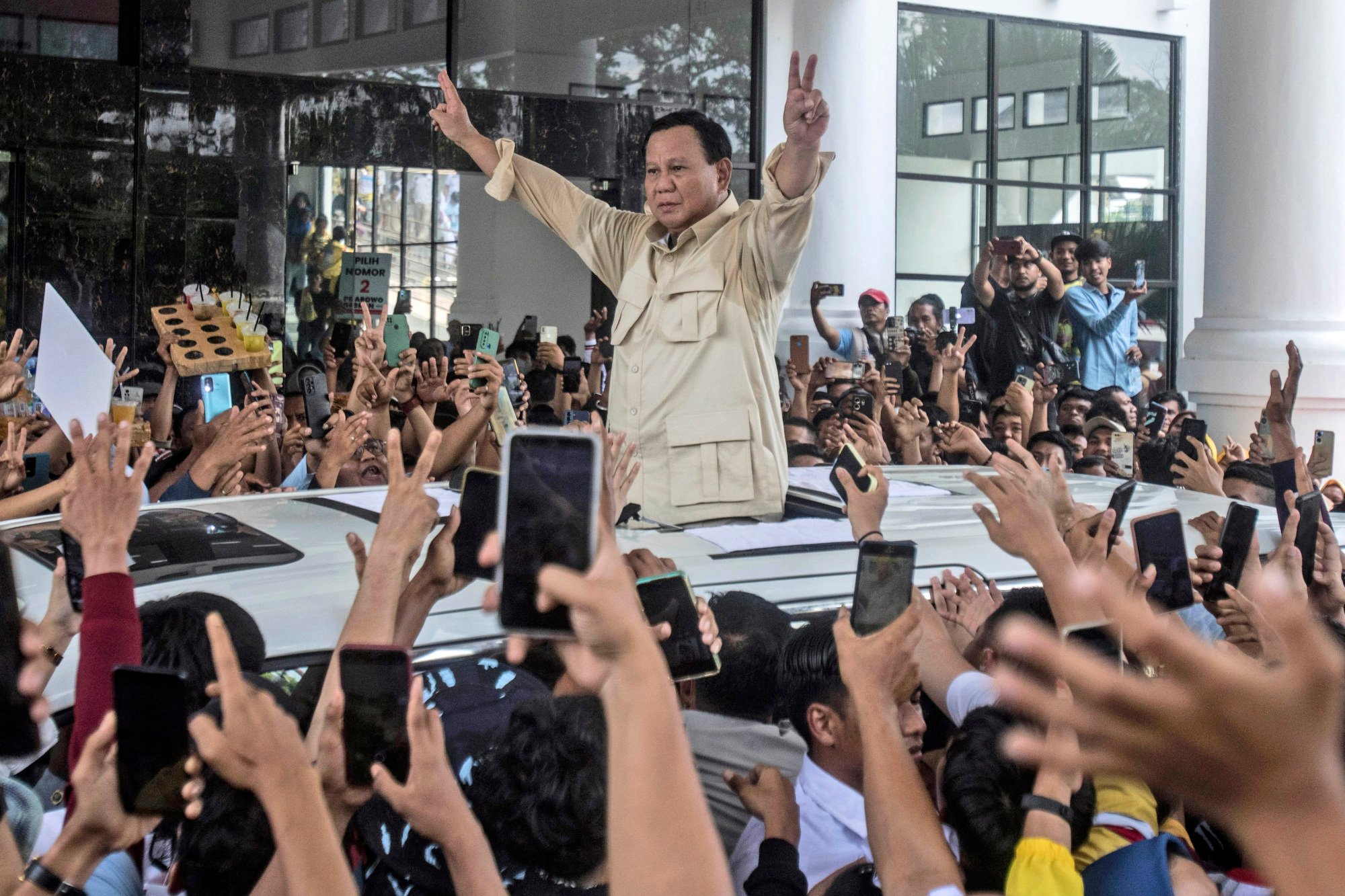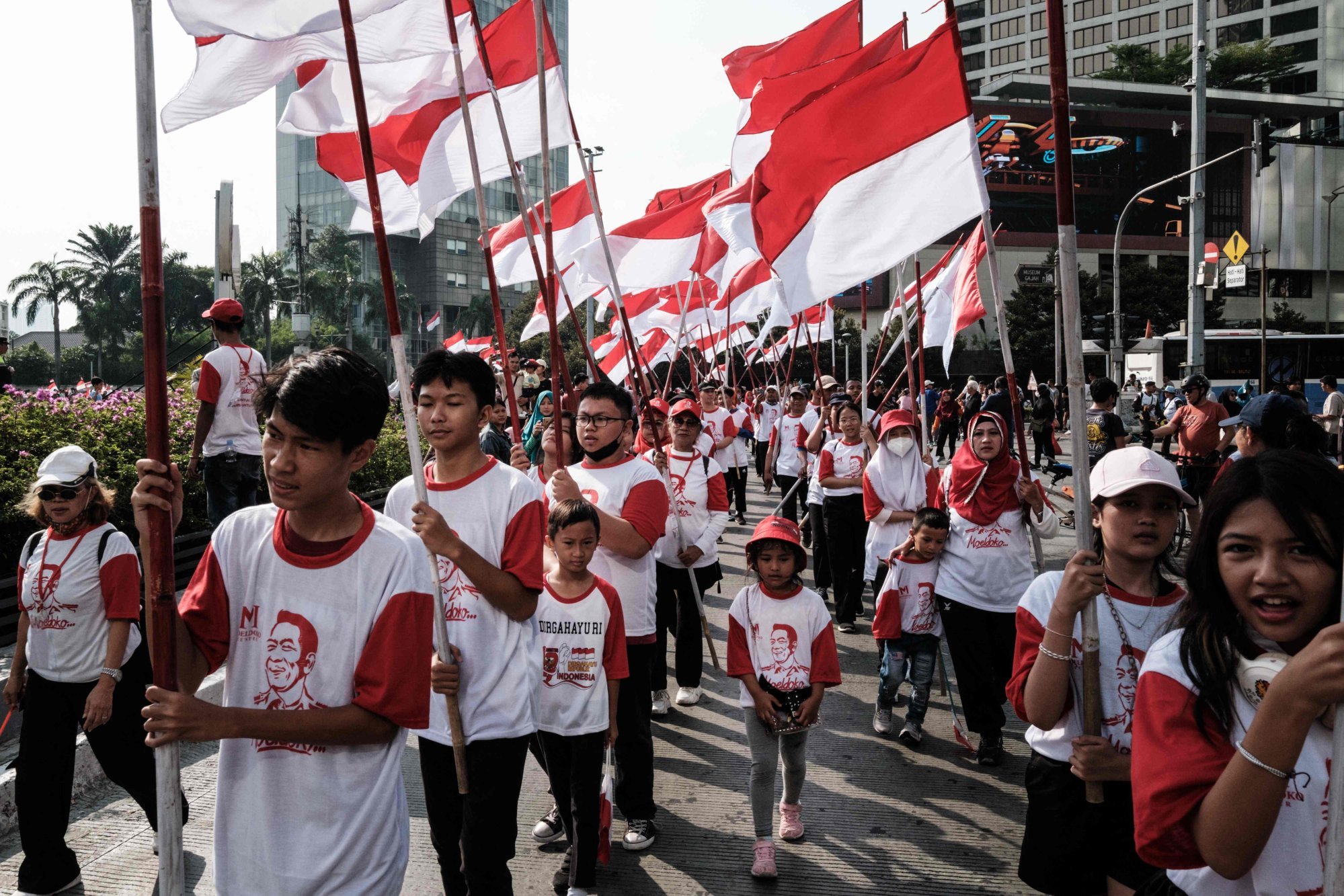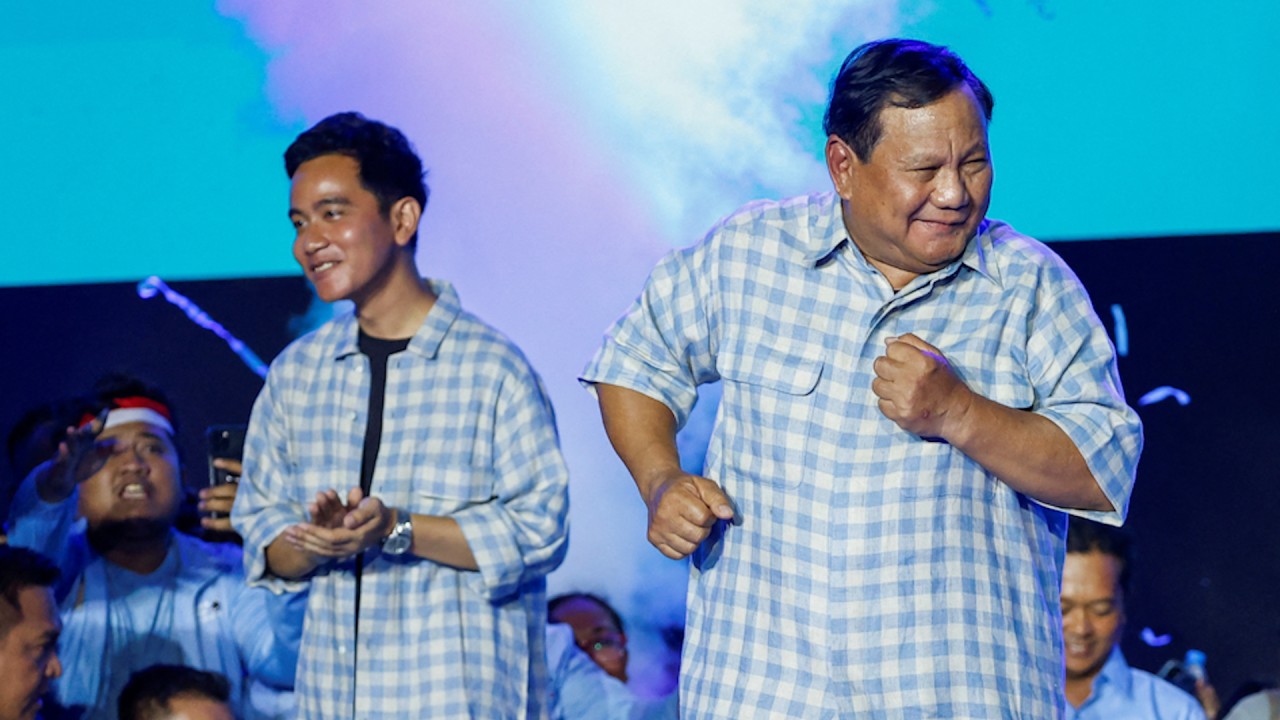
Global Impact: ‘Cuddly Grandpa’ Prabowo Subianto claims a victory for all Indonesians, defence minister to succeed Jokowi
- Global Impact is a weekly curated newsletter featuring a news topic originating in China with a significant macro impact for our newsreaders around the world
- In this issue, we look back at the result of the recent Indonesian election, with Prabowo Subianto set to be the country’s next president, based on quick-count results
Based on unofficial quick-count results, Prabowo secured around 58 per cent of the vote in the February 14 election.
Should the final official results reflect the quick counts – which has been a historical trend – it would mean Prabowo has earned a decisive victory over former governors Anies Baswedan and Ganjar Pranowo.
What changed Prabowo’s fortunes this time? Observers suggest that it was a strategic rebranding move, aiming at shifting away from his strongman image to a more amicable “cuddly grandpa” persona.
He tapped Jokowi’s 36-year-old son, Gibran Rakabuming Raka, as his running mate, which provided a significant boost to his polling numbers.
Jokowi’s tacit support for Prabowo and his political manoeuvring has left a stain on the way the election panned out, and on the incumbent’s legacy, observers said.
In the lead-up to election day, students and activists took to the streets to denounce both Jokowi and Prabowo, and demonstrations have continued, with protesters alleging the electoral process was undemocratic.
“The voters had a dilemma between choosing a candidate for change or sticking to continuity with Jokowi’s policies, and it appears they have gone with the latter option,” said Arya Fernandes, head of the politics department at the Centre for Strategic and International Studies in Jakarta.
“This shows the political support and endorsement by Jokowi was effective and has really worked out. It really helped shape voters’ perceptions of Prabowo.”
Prabowo did not contest the presidency for three tries [to] do somebody else’s bidding
What the future looks like for Indonesia under Prabowo’s rule is still very much up in the air, according to analysts. Some describe him as a “political chameleon” who has adopted different personas over the past few election cycles.
Despite their bitter rivalry, Jokowi co-opted Prabowo in his cabinet, naming him defence minister after winning the 2019 election.
But it remains unclear whether Prabowo will keep his commitment to continuing Jokowi’s policies once at the helm.
This includes the president’s legacy project – the US$32 billion relocation of the capital to Nusantara in East Kalimantan, as well as his “downstreaming policy” on nickel, which has been highly dependent on Chinese investment.
“Prabowo did not contest the presidency for three tries [to] do somebody else’s bidding,” said Sana Jaffrey, a research fellow at Australian National University specialising in Indonesian politics.
I think Indonesia’s foreign policy, at its core, is to not make a commitment with either of the two warring sides
“I think Indonesia’s foreign policy, at its core, is to not make a commitment with either of the two warring sides, China or the US, and is in staying neutral and being free of that geopolitical rivalry,” Jaffrey said. “I don’t see that shifting.”
Despite his tendency for nationalistic rhetoric, it is likely Prabowo will continue Jokowi’s pragmatic approach towards Beijing.
But what is clear from Prabowo’s election manifesto is that the former general’s focus will be on presenting Indonesia as a “strong country” on the global stage, which is “respected in international relations” and has “well-managed defence and security” to protect itself and ensure peace in its territory.
It remains to be seen what means Prabowo will use to achieve his goals, but observers agree that the only certainty regarding Prabowo’s presidency is its current unpredictability.
60-Second Catch-up
Deep dives

Some Indonesian Chinese wary of Prabowo Subianto amid painful memories of 1998 riots
-
The president-elect had previously admitted to being involved in the kidnapping of student democracy activists
-
While some older Chinese Indonesians oppose Prabowo, other younger voters are willing to look past the country’s dark history and support him
While some Chinese-Indonesians said they had opposed Prabowo on this ground, others, especially those from younger generations, were willing to look past the country’s dark history and hope that its political and economic stability would continue.

China not expected to let past overshadow ties with Indonesia’s new leader
-
Questions have been raised about the former general’s possible role in 1998 anti-Chinese riots, but analysts believe he will want strong ties with Beijing
-
Prabowo says he wants to continue the policies of President Joko Widodo, widely known as Jokowi, whose rule has seen relations with China flourishing

Prabowo’s presidency: new chapter in Indonesia-China ties or business as usual?
-
Several analysts say Prabowo is unlikely to do anything to upend the economic cooperation outgoing president Joko Widodo has established with China
-
But, one observer believes Prabowo may use Indonesia’s non-aligned position to benefit from both Washington and Beijing’s competing interests in the country

‘Very popular’ Joko Widodo to continue political dynasty with Prabowo win
-
Widodo’s pragmatic approach created a stable political climate and economic growth, but critics say democracy and human rights have regressed under his rule
-
Widodo likely to have ‘plan up his sleeve’ after backing his son Gibran and former general Prabowo Subianto’s winning ticket, analysts say

Indonesia election 2024: will young voters be key in picking a winner?
-
The outcome of the three-way race could be determined by the turnout of voters for their respective candidates, analysts say
-
This year’s election has been dogged by controversies including perceived meddling by President Joko Widodo and the Constitutional Court
The organisation of the world’s largest single-day election is no easy feat given the challenge of reaching out to voters living across Indonesia’s vast archipelago comprising over 17,000 islands.

Chinese firms to benefit if front-runner Prabowo seals Indonesian election win
-
Opinion polls favour the ex-general bent on continuing an economic strategy anchored on business ties to China
-
‘Chinese companies are likely to benefit the most given the positive economic relations that [Joko Widodo] has established with Beijing,’ says analyst
Global Impact is a weekly curated newsletter featuring a news topic originating in China with a significant macro impact for our newsreaders around the world.


